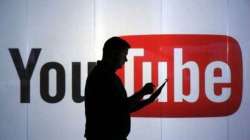YouTube implements stricter guidelines for health misinformation
YouTube's collaboration with Mayo Clinic is expected to result in informative video content covering a range of cancer conditions. The platform's proactive approach towards removing misleading health content aligns with its commitment to providing accurate information and protecting users.

YouTube has announced a new initiative to combat misinformation related to cancer treatments. The platform stated that it will remove content that promotes "cancer treatments proven to be harmful or ineffective" or content that discourages viewers from seeking professional medical treatment. This move is part of a broader effort to organize its existing medical misinformation guidelines into three categories: Prevention, Treatment, and Denial.
Dr. Garth Graham, Director and Global Head of Healthcare and Public Health Partnerships at YouTube, explained that these policies will specifically target health conditions, treatments, and substances where content contradicts guidance from local health authorities or the World Health Organization (WHO).
The platform's updated guidelines will encompass various aspects, including removing content that contradicts health authority advice about the prevention and transmission of specific health conditions, as well as the safety and effectiveness of approved vaccines. This includes content that promotes harmful substances for disease prevention and encourages unproven remedies instead of seeking proper medical attention for particular conditions.
Matt Halprin, VP and Global Head of Trust and Safety at YouTube, emphasized that the platform will also take action against content that disputes the existence of specific health conditions, such as denying COVID-19-related fatalities.
ALSO READ: X introduces feature allowing paid users to highlight posts
Starting from a recent Tuesday, YouTube will gradually implement its content removal efforts over the upcoming weeks. This will involve removing content that promotes cancer treatments that have been proven to be harmful or ineffective, as well as content that dissuades viewers from seeking professional medical treatment. This encompasses videos that suggest unproven treatments as alternatives to approved care or as guaranteed cures, especially when health authorities have deemed such treatments as harmful.
ALSO READ: OpenAI's Future at risk: ChatGPT's costs spark bankruptcy fears by 2024
To provide accurate and informative content, YouTube is curating a playlist of engaging cancer-related videos from authoritative sources. Additionally, the platform is collaborating with the Mayo Clinic to produce new video content that shares information about various cancer conditions.
In this way, YouTube aims to address cancer misinformation and enhance the availability of reliable health-related content on its platform.
ALSO READ: Snapchat's 'My AI' chatbot raises concerns with unexpected behavior
Inputs from IANS